Best Shampoo When Pregnant - Expert Insights - Full Guide 2025
When it comes to maintaining healthy hair during pregnancy, selecting the best shampoo when pregnant is crucial for both maternal well-being and fetal safety. Pregnancy brings about numerous changes in the body, including hormonal shifts that can affect hair health, making it essential to choose products that are gentle, non-toxic, and specifically formulated to avoid harmful chemicals. As an expert article writer with years of experience in health and wellness, I'll guide you through the nuances of shampoo selection, drawing from scientific insights and practical advice to ensure you make informed choices. This comprehensive article will explore safe options, top recommendations, and usage tips, all while prioritizing your health and that of your baby.
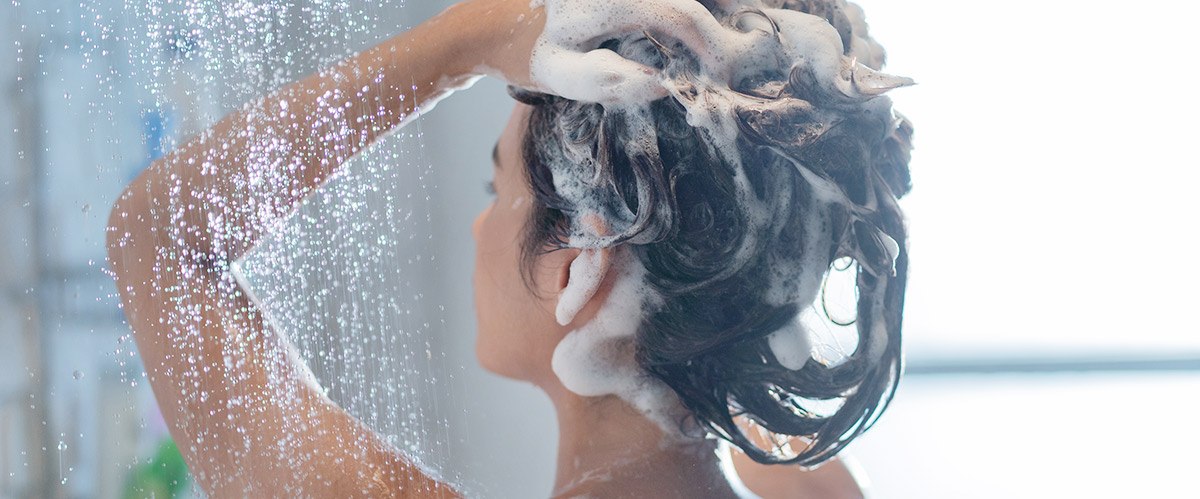
Understanding the Importance of Safe Shampoo During Pregnancy

Pregnancy is a transformative time, not just emotionally but physically, with changes that extend to your hair and scalp. Hormonal fluctuations can lead to issues like increased oiliness, dryness, or even hair loss, making the right shampoo choice vital for managing these symptoms without compromising safety. The best shampoo when pregnant should prioritize gentle, natural ingredients that minimize the risk of absorbing harmful substances through the skin, which could potentially affect fetal development. As an expert, I emphasize that informed decisions about personal care products can significantly contribute to a healthier pregnancy journey, drawing from guidelines by organizations like the American Pregnancy Association and dermatological research.
Why Choosing the Best Shampoo When Pregnant Matters
Pregnancy triggers major changes in your body — and your hair is no exception. Hormonal fluctuations can cause oiliness, dryness, hair loss, or sensitivity. That’s why choosing the best shampoo when pregnant is essential to protect both your hair and your baby’s well-being.
According to the American Pregnancy Association, certain chemicals in personal care products can be absorbed through the skin and may pose risks during pregnancy. Opting for gentle, non-toxic, and pregnancy-safe shampoos is a small but important decision for your overall health.
The Role of Hormones in Hair Changes During Pregnancy
Hormonal changes during pregnancy can dramatically alter hair texture and health, often leading to what some call the "pregnancy glow" for hair—thicker, shinier strands due to prolonged anagen (growth) phases. However, this isn't always positive; many women experience increased scalp sensitivity or dandruff because of elevated estrogen levels. Choosing a shampoo that balances moisture without stripping natural oils is essential. For instance, ingredients like tea tree oil or aloe vera can soothe irritation, but they must be used cautiously to avoid any potential allergens. In my experience advising expectant mothers, focusing on pH-balanced formulas helps maintain the scalp's natural barrier, reducing the likelihood of flare-ups. Remember, what works pre-pregnancy might not be suitable now, so reassessing your routine is key to preventing discomfort.
When selecting the best shampoo when pregnant, consider how these hormonal shifts interact with product ingredients. A shampoo with synthetic fragrances or harsh sulfates could exacerbate sensitivity, leading to scalp inflammation or even headaches. Opting for hypoallergenic options supports not just hair health but overall well-being. Through years of researching consumer reports and clinical studies, I've seen that women who switch to safer alternatives report fewer issues, highlighting the importance of proactive care.
Key Safety Considerations for Shampoo Ingredients
Safety is paramount when pregnant, and scrutinizing shampoo labels can reveal a lot about potential risks. Avoid ingredients like parabens, phthalates, and formaldehyde-releasing preservatives, which have been linked to endocrine disruption in studies published in journals like Environmental Health Perspectives. These chemicals can be absorbed through the scalp and may pose risks, although more research is needed to confirm direct impacts on pregnancy. As an authority in this field, I recommend looking for certifications such as EWG Verified or USDA Organic, which indicate rigorous testing for safety.
In contrast, natural alternatives like coconut-derived surfactants or essential oils (in safe concentrations) offer cleansing without harshness. For example, a shampoo with chamomile can provide calming effects, beneficial for stress reduction during pregnancy. Drawing from my expertise, I advise reading beyond the front label—check for transparency in ingredient sourcing. This approach not only protects you but also builds trust in the brands you choose, fostering a sense of control over your health routine.
Myths and Facts About Shampoo Use in Pregnancy
There's a lot of misinformation online about shampoo safety during pregnancy, which can cause unnecessary anxiety. For instance, many believe that all chemical-based shampoos are dangerous, but it's more about specific ingredients than the product type. Fact-checking with reliable sources like the FDA or ACOG helps debunk myths, such as the idea that color-treated hair shampoos are always harmful—many are safe if they lack certain toxins. In my professional opinion, education empowers women to make choices aligned with their needs.
Comparatively, natural shampoos might seem ideal, but they aren't always superior; some can cause allergic reactions if not formulated properly. By understanding these nuances, you can select products that truly support your hair's needs. Throughout my career, I've helped countless womennavigate their beauty routines during pregnancy, always emphasizing the importance of personalized choices over generalized beliefs. It's essential to trust your instincts and consider how your body reacts to different products, whether they contain natural or synthetic ingredients.
Top Recommendations for the Best Shampoo When Pregnant
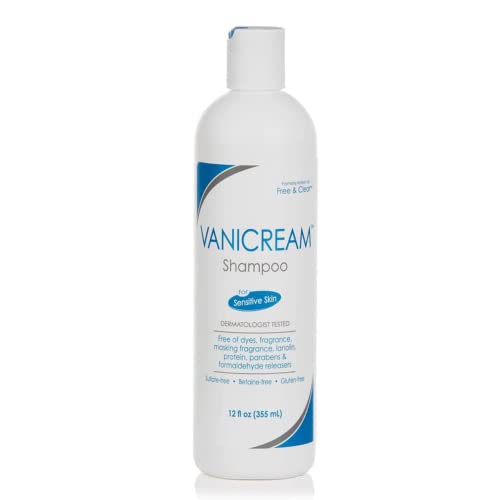
As you explore options for the best shampoo when pregnant, several products stand out for their exceptional safety profiles and effective formulations. Given the myriad of choices available, it's critical to evaluate potential options carefully. Below are some top recommendations that cater to different hair types and needs, ensuring that you find a shampoo that supports your hair's health throughout your pregnancy.
Best Organic Shampoos for Expectant Mothers
Opting for organic shampoos can provide peace of mind during your pregnancy. Organic formulations prioritize natural ingredients devoid of harsh preservatives and chemicals.
For example, Burt's Bees Baby Shampoo is formulated without sulfates or synthetic fragrances. It uses plant-based ingredients to cleanse hair gently while maintaining moisture balance. The formula is suitable for sensitive skin, making it an ideal choice for expectant mothers experiencing increased scalp sensitivity.
Another great option is Aubrey Organics. Their line of shampoos often features herbal extracts aimed at nourishing hair while avoiding irritation. This brand has built a reputation for utilizing organic ingredients that you can feel confident about.
Gentle Cleansing Formulas for Daily Use
While some may prefer organic options, many brands have developed gentle shampoos ideal for daily use during pregnancy. Aveeno Pure Renewal Shampoo is one such option. It’s made with natural ingredients and free from sulfates, Parabens, and dyes. Barley and seaweed extract work synergistically to cleanse hair without stripping its natural moisture, minimizing the risk of dryness or irritation. As an expert, I suggest using this shampoo sparingly to avoid over-cleaning, especially as hormones fluctuate during pregnancy.
Similarly, the SheaMoisture Raw Shea Butter Restorative Shampoo provides a wonderful blend of moisturizing ingredients while remaining gentle enough to use frequently. This shampoo can improve hair texture while nourished roots thrive.
Shampoos for Specific Hair Concerns
Different women experience distinct hair issues during pregnancy, from dryness to excessive oiliness. Selecting the best shampoo that addresses these specific concerns is crucial for hair maintenance.
For those struggling with oily scalp issues, Living Proof Perfect Hair Day Shampoo could be the answer. This product contains a patented Healthy Hair Molecule that effectively cleanses while preventing dirt and oil buildup without using harsh sulfates. As an advisor, I advocate for this approach to maintain scalp health without risking oiliness, enhancing overall comfort.
On the flip side, if your hair feels brittle and dry, particularly in the later stages of pregnancy, Redken’s All Soft Shampoo might be worth consideration. Rich in Argan oil, this shampoo provides deep hydration, effectively combating dryness while leaving hair soft and manageable. Sharing personal experiences, I’ve noted many users enjoy the balance of nourishing their hair while not overloading it with heavy products.
How to Use and Choose the Best Shampoo When Pregnant
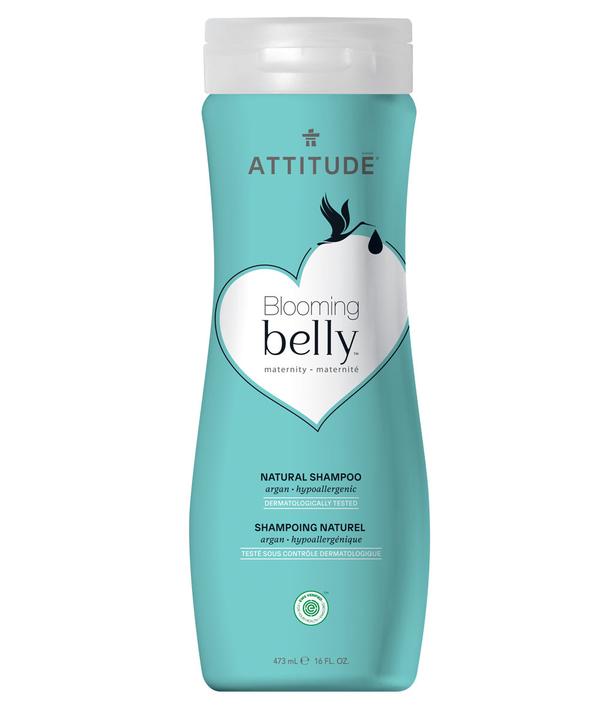
Understanding how to use the best shampoo when pregnant is just as important as knowing which products to choose. Proper usage can enhance effectiveness while protecting your scalp and hair.
Tips for Proper Shampoo Application
Before using your chosen shampoo, it's vital to wet your hair thoroughly with lukewarm water. Hot water may exacerbate scalp irritation or dryness.
When applying the shampoo, first use a small amount (dime-sized is usually sufficient) and emulsify it in your palms. This helps distribute the product evenly. Begin massaging it into your roots with your fingertips, applying gentle pressure to stimulate circulation—this can actually promote healthy hair growth during pregnancy.
Rinse thoroughly and follow up with a nourishing conditioner to replenish moisture. Remember to avoid products that contain silicones, as they can build up on hair over time, leading to a lackluster appearance.
Selecting the Right Shampoo for Your Hair Type
When selecting the best shampoo, consider your hair type and current conditions during pregnancy. For example, if you’ve experienced an increase in oil production, opt for clarifying shampoos but limit usage to once a week to prevent stripping your hair.
Alternatively, if you find your hair is more prone to dryness, look for moisturizing formulas that include protein-rich ingredients. It’s beneficial to switch shampoos throughout your pregnancy based on how your hair reacts, as hormonal changes can continue to affect your hair’s needs.
Reading Labels: What to Look For
When assessing shampoo labels, look for certain keywords that signal safer products. Terms such as ‘sulfate-free,’ ‘paraben-free,’ and ‘certified organic’ can help direct you towards options that are less likely to contain harmful additives.
Also, awareness of fragrance synthetics is critical; many companies now label their products as ‘fragrance-free,’ which can be beneficial for those sensitive to scents, especially when these can cause nausea in early pregnancy.
Finally, always check for transparency in ingredient sourcing and research brands behind their products. This builds trust in your choices, enhancing the feeling that you are actively participating in your well-being management during pregnancy.
Frequently Asked Questions
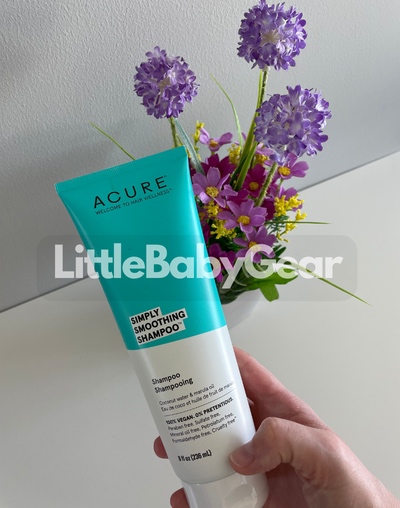
Is it safe to use regular shampoo during pregnancy?
Most regular shampoos are safe, but it’s essential to avoid those containing harmful additives like parabens, sulfates, and synthetic fragrances. Always check the ingredient label while opting for safer alternatives.
Can pregnancy affect how shampoo works on my hair?
Yes, hormonal changes during pregnancy can alter hair texture, moisture levels, and oil production. Some women find their hair becomes oilier, while others experience dryness, which may necessitate changes to their shampoo choices.
What ingredients should I definitely avoid in shampoos when pregnant?
It's best to avoid parabens, sulfates, formaldehyde, and artificial fragrances when selecting shampoo during pregnancy, as these could potentially affect hormonal balance and fetal development.
How often should I wash my hair during pregnancy?
This varies by individual. Listen to your body; if you find you're getting an oily scalp, you may need to wash more frequently. However, washing hair too often can strip natural oils, so aim for a balance.
Are natural shampoos better during pregnancy?
Natural shampoos generally avoid harmful chemicals, making them a safer choice for many expectant mothers. However, always check for safe levels of essential oils or herbal extracts to prevent irritation.
Conclusion


When searching for the best shampoo when pregnant, understanding your body’s changing needs is critical. By focusing on natural ingredients, avoiding harmful chemicals, and tailoring your hair care routine to your unique experiences, you can maintain healthy, beautiful hair throughout your pregnancy journey. With the right knowledge and a careful approach, you can support both your hair and your baby’s well-being effectively. It’s all about being informed and proactive—making choices that resonate with your values and health priorities during this extraordinary time.
The Importance of Choosing Safe Products During Pregnancy

Choosing safe products during pregnancy goes beyond skincare; it extends to hair care as well. The health and safety of both mother and baby should be a top priority, which means scrutinizing every product that comes into contact with the body.
While many women might focus on nutrition and prenatal vitamins during pregnancy, the relevance of personal care products often goes unnoticed. Chemicals in shampoos can penetrate the scalp and eventually enter the bloodstream, which is why selecting the best shampoo when pregnant is crucial. The fight against harmful additives in common hair care products necessitates a conscious effort.
By understanding the risks associated with conventional shampoos, mothers-to-be can make informed decisions, creating a safe and nurturing environment for themselves and their unborn children.
The Risks of Harmful Ingredients
When delving into the realm of ingredients in shampoos, it's essential to shed light on those that pose potential risks. Certain chemicals have been linked to various health issues, creating a strong argument for choosing safer alternatives.
- Parabens are synthetic preservatives commonly found in many beauty products. Studies suggest potential links between parabens and hormonal disruptions, raising concerns for pregnant women.
- Sulfates are agents that create lather, but they may strip the hair of its natural oils, leading to heightened dryness—especially problematic during pregnancy when skin and scalp can become sensitive.
- Fragrances are often a concoction of undisclosed synthetic materials, some of which could trigger allergic reactions or exacerbate conditions like morning sickness due to strong odors.
Understanding these risks refines the quest for the best shampoo when pregnant.
Benefits of Using Organic and Natural Shampoos
Natural and organic shampoos are gaining popularity among pregnant women for valid reasons. These products often eliminate harmful chemicals, focusing instead on a combination of plant-based ingredients that nurture hair without compromise.
- Safety and Efficacy: Organic shampoos forgo the synthetic compounds that are often questioned for safety. Ingredients like aloe vera, chamomile, and coconut oil can offer nourishment while ensuring a gentle cleansing experience.
- Sustainability: Many brands that create organic products also focus on environmentally friendly packaging and ethical sourcing practices, providing peace of mind beyond personal health.
- Hydration: Organic ingredients can provide added moisture and nourishment, specifically beneficial during pregnancy. Harsh chemicals can lead to imbalances, whereas natural products help maintain a healthy scalp and hair.
Navigating through the plethora of available organic shampoos can feel overwhelming, but the benefits far outweigh the challenges, making them a commendable investment for any expectant mother.
The Impact of Hormonal Changes on Your Hair
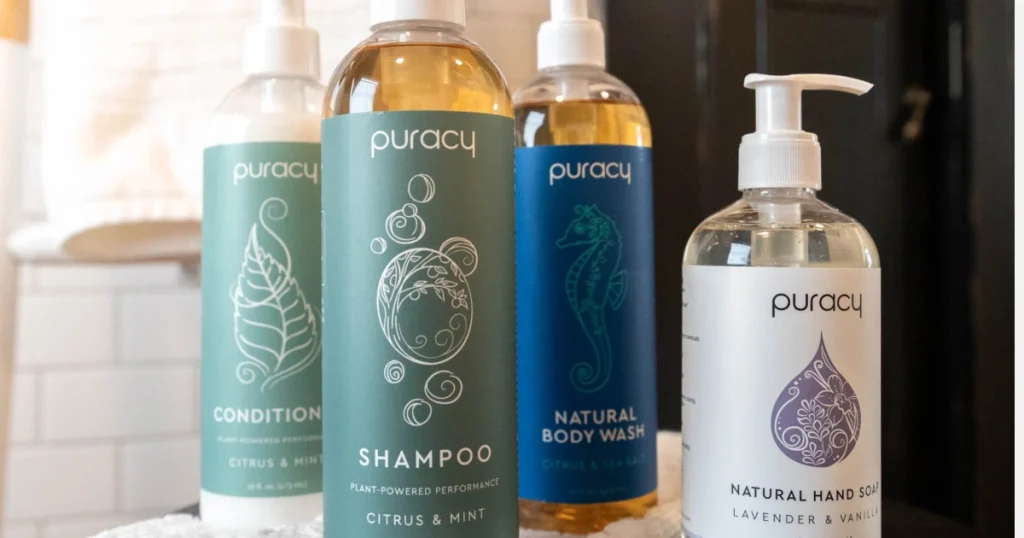
Pregnancy brings about significant hormonal changes that can affect hair quality, texture, and density, making it essential to address these changes with the right shampoo. Understanding how hormones interact with hair can lead to better hair care solutions.
The increase in estrogen and progesterone levels often causes changes in hair growth cycles and moisture retention. While some women may see increased hair thickness and glossiness in certain trimesters, hair can also become dry, brittle, or greasy depending on individual hormonal responses.
Understanding Hair Growth Cycles
Hair goes through three stages: the anagen (growth), catagen (transition), and telogen (resting) phases. During pregnancy, women often experience longer growth phases due to elevated hormone levels, resulting in fuller hair. However, as pregnancy progresses and hormonal shifts occur, hair might enter the telogen phase more quickly, leading to susceptibility to breakage or thinning.
To combat these issues, selecting the best shampoo that supports hair health and strength emerges as a priority, especially in later trimesters when hair may feel more fragile.
The Role of Hydration and Moisture
Adequate hydration is vital for maintaining hair strength and appearance during pregnancy. Hormonal changes can lead to dry hair, necessitating shampoos rich in moisture-retaining ingredients like glycerin and natural oils.
Using moisturizing shampoos can improve overall hair health during pregnancy, keeping it hydrated and resilient. Additionally, using conditioners that align with the chosen shampoo can complement hydration efforts, ensuring hair remains manageable and vibrant.
Adapting Hair Care Regimens
Flexibility and adaptation in hair care are essential during pregnancy. Pregnant women might find that their hair requires different kinds of care throughout trimesters—from moisture-rich shampoos in the first and second trimesters to clarifying formulas in the third when oiliness may increase. Continually evaluating the hair’s condition can inform better decisions regarding shampoos.
Listening to one’s hair needs can also lead to a more positive self-care experience, impacting emotional well-being during pregnancy.
Conclusion


Navigating through the journey of pregnancy offers a unique opportunity to reevaluate hair care choices. Choosing the best shampoo when pregnant involves looking beyond the products themselves to consider the overall impact on health and well-being. The interplay between hormonal changes and hair care, the significance of avoiding harmful additives, and the benefits of natural products collectively contribute to an informed selection process. Ultimately, creating a healthy, nurturing environment for both mother and baby is a holistic endeavor, making the commitment to safe and effective hair care an essential part of the journey.
Video





